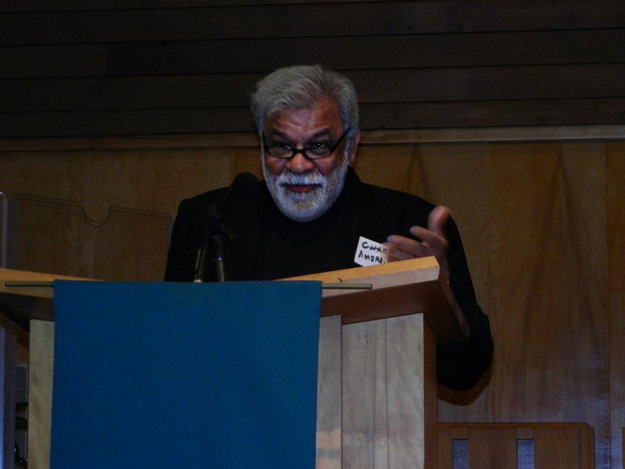
Dr Charles Amjad Ali, who holds three doctorates and is a professor at Luther Seminary, shared these insights at an interactive session at Urban Resource Centre based on the social, economic and political situation of Pakistan.
‘Religion’s role in politics should be persuasive, not coercive’
Talking about the period between 1971 and 1974, he said that it was the first time that labourers' aspirations were given this space and roti, kapra, makaan [bread, cloth and shelter] came as a call. "It was the only time when there was a possibility that Pakistan could become a people's state," he said.
He went on to say that during the time around 1971, people used to stay away from the military and did not like to be associated with the institution. "Bureaucracy was broken, too, as Calcutta's educated class came in," he said. "Clergy's hold was weakened, too."
Ali started his talk by asking the attendees, comprising a significant number of youths, as to what Pakistan and being a Pakistani means to them. With answers ranging from a free land to a 'Land of the Pure', Ali pointed out how it is the establishment that decides who will come to power.
"The Objectives Resolution said that sovereignty belongs to Allah, exercised through its people," he said. "The people part has been deleted and replaced with establishment."
Bangladesh may drop Islam as country's official religion
Addressing the young audience, he said that when you define Pakistan, do raise questions about who it belongs to and who has rights in this land. "The state has not looked after its people," he said. "The fact that you have to buy water is evidence that the resources haven't depleted. It is about who keeps hold on the resources."
The patient problem
Sharing his views on the future of Pakistan and if the struggle to make Pakistan a 'people's state' can go on, he said that the problem is that Pakistanis are very patient. "They don't scream and demand their rights," he said.
Challenging reports
Answering a question on what the youth can do, he identified some concrete steps such as challenging the reports sent by the government to the United Nations indicating that rights are ensured and provided. "You can write a counter report, identify the instances when rights were violated and send the reports," he said. "It is your right." He also pointed out that smartphones can serve as sources of revolutionary discourse of the current times. "You have to decide the cause that will unite people," he said. "Keep your eyes sharp. Look beneath the tip of the iceberg."
Published in The Express Tribune, April 2nd, 2016.




1732538123-0/BeFunky-collage-(90)1732538123-0-165x106.webp)












COMMENTS (8)
Comments are moderated and generally will be posted if they are on-topic and not abusive.
For more information, please see our Comments FAQ